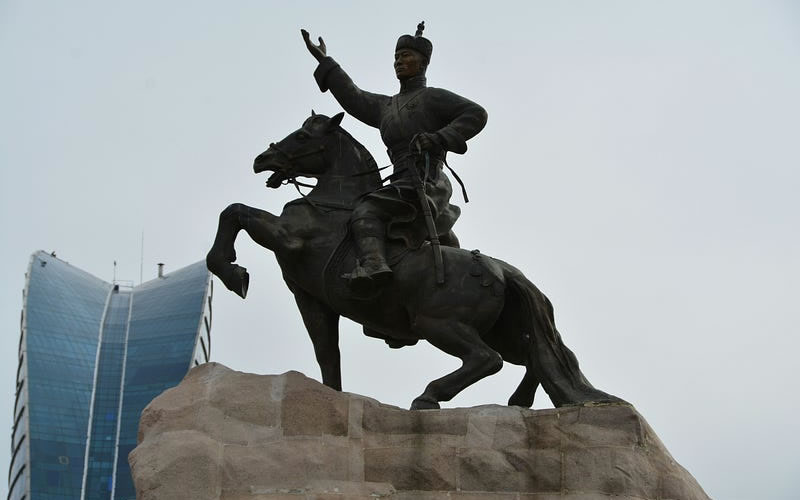Stephen was a faithful witness of Jesus in the early church who lost his life as a result of boldly proclaiming the truth about Christ to the Jewish leaders, and exposed their rejection of God’s messengers and the Messiah. His fearless stand enraged the council, and this led to his brutal stoning, the first recorded martyrdom in Christian history.
A Tragedy That Seemed Too Soon
Stephen’s death was a shock to the early church. He was not just another follower of Jesus; he was a man full of faith, wisdom, and the Holy Spirit (Acts 6:5). He spoke with such grace and power that even his enemies couldn’t argue with him. And yet, with stones in their hands and fury in their hearts, they silenced his voice.
Why would God allow someone like Stephen to die so young, so violently? It’s a question many of us wrestle with: “Lord, why did You let this happen? He was so useful to the early church and did so much good.” His death caused deep grief. Acts 8:2 tells us, “Some devout men came and buried Stephen with great mourning.”
Stephen’s death felt like a blow to the gospel. It was the tragic loss of a bright, bold witness. But what looked like defeat was the seed of a divine miracle.
The Unexpected Answer to a Martyr’s Prayer
As Stephen was being stoned, he didn’t curse his enemies or call for their destruction. Instead, he prayed two remarkable prayers:
- “Lord Jesus, receive my spirit.”
- “Lord, do not hold this sin against them.”
These final words reflect the heart of Jesus and reveal Stephen’s deep surrender, mercy, and Christ-like love, even in death. His prayers echo Jesus’ words from the cross. Stephen, like his Savior, died forgiving his enemies. But here’s the stunning truth: God answered Stephen’s prayer almost immediately.
Standing just a few feet away, guarding the coats of the murderers, was a young man named Saul. He was brilliant, zealous, and convinced that Christianity was a threat to the Jewish faith. He gave full approval to Stephen’s execution. And then he launched a campaign of terror against the church, dragging believers from their homes and throwing them into prison (Acts 8:3). But in Acts 9, everything changes.
When Mercy Finds a Murderer
On the road to Damascus, as Saul rides with hatred in his heart, Jesus Himself stops him in his tracks.“Saul, Saul, why are you persecuting Me?” (Acts 9:4). And so, the man who approved of Stephen’s death is blinded, broken, and born again.
Saul, whose Roman name was Paulos or Paul, becomes the apostle to the Gentiles, the greatest missionary the world has ever known. This is the transformative power of mercy. The name “Paul” becomes dominant after his conversion and especially as he begins his ministry to the Gentiles. The name shift symbolizes his new identity, calling, and humility as a servant of Christ.
Stephen’s Death Was Not in Vain
Stephen’s faithful witness planted seeds that, through God’s mercy, blossomed in the heart of his greatest enemy. Think about it:
- The man who approved Stephen’s death would later carry Stephen’s message to the ends of the earth.
- The one who helped scatter the church through persecution would become the one who spread the church across the Roman Empire.
- Paul becomes the embodiment of what Stephen died believing: that Jesus is alive, enthroned, and worth everything.
- Stephen’s final words of forgiveness became the soil in which Paul’s new life in Christ took root.
What appeared to be a tragedy was, in fact, part of a larger miracle. Paul will endure beatings, imprisonment, and eventually death for preaching the same gospel that Stephen died for. What Stephen did in death, Paul would do in life: testify boldly, suffer faithfully, and love Christ above all.
The blood that stained Saul’s conscience eventually became the fire that fueled his mission. Stephen’s death and Saul’s transformation are two sides of the same gospel coin:
- Stephen shows the cost of discipleship.
- Paul (Saul) shows the power of grace.
What This Means for Us Today
Here’s what Stephen’s story and Saul’s transformation teach us about God’s power, purpose, and grace:
- God’s Ways Are Higher Than Ours: When we face sorrow or loss, we don’t always see the whole picture. Like the early church, we may mourn deeply over what God allows. But God sees not just the moment but the movement He’s orchestrating. “What you meant for evil, God meant for good…” (Genesis 50:20)
- No One Is Beyond Redemption: If God can reach a violent persecutor like Saul, He can reach anyone. No person is too far gone. Never stop praying for your enemies. “Love your enemies, bless them that curse you, do good to them that hate you, and pray for them which despitefully use you, and persecute you” (Matthew 5:44). Stephen prayed for his killer, and God answered by saving him.
- The Blood of the Martyrs is Not Wasted: Stephen’s death was not the end; it was the beginning. His life poured out and became the spark that lit the flame of Paul’s calling. In God’s economy, sacrifice is never wasted.
- Yielded Lives Shape Eternity: Stephen was fully yielded to God’s will, even unto death. He didn’t cling to comfort or safety. He chose truth over survival. And his obedience shook history. Would you trust God enough to let Him use even your pain?
Final Reflection
When Stephen died, many wept. They thought they lost a powerful voice. But God was raising up another voice in Paul. A voice that is even louder and farther-reaching. It is one of the greatest mysteries of grace: that God used the blood of one servant to bring new life to another. One seed fell into the ground… and it bore much fruit (John 12:24).
So if you’re in a season where something precious seems lost… where God seems distant or unfair… remember Stephen. And remember Saul. What looks like sorrow now may be the soil of your miracle later. God never wastes our faithfulness. He weaves our pain into purpose. And sometimes, the very people we pray for with tears… will one day preach the gospel with fire.
Let’s pray: “Lord, like Stephen, help us trust You even when we don’t understand. Help us forgive like Christ. Let our lives and even our losses be used to transform others. And give us eyes to see that what looks like tragedy may be the beginning of new life. In Jesus’ name, Amen.”




